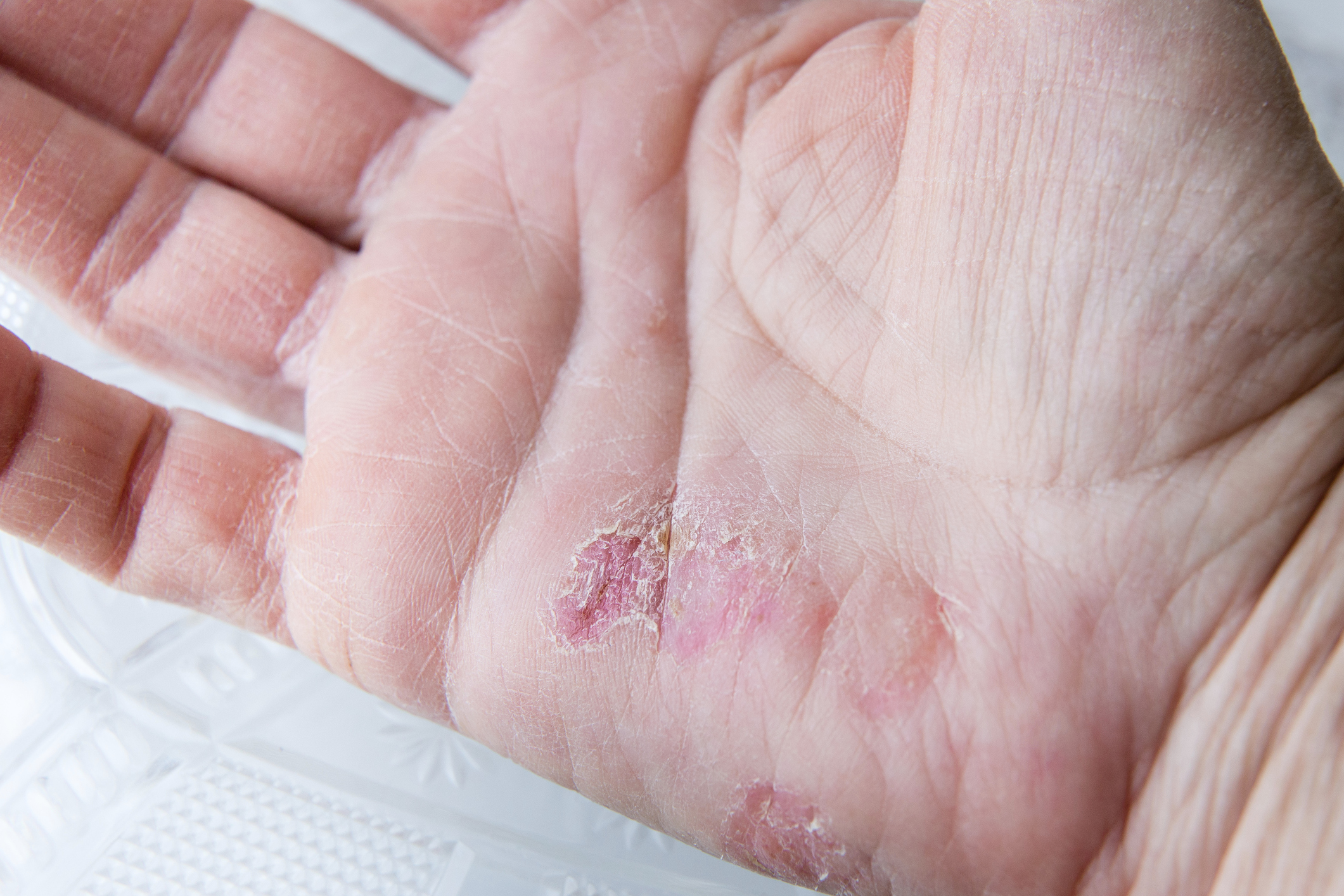With a recent cold snap, many homeowners have relented and finally turned on the furnace to take the chill out of the air on these cool mornings. But forced air heating can also dry out skin and make conditions like eczema worse. October is Eczema Awareness Month and adults, especially over the age of 50, can develop eczema for the first time even if they never had it as children.
Also known as atopic dermatitis, eczema is an extremely itchy skin condition that usually presents with dry, red patches of skin. Sometimes adults suffer in silence with the condition, but with treatments including moisturizers, tepid bathing, topical steroids, phototherapy or other systemic medications, it can be managed.
The FDA recently approved two new treatments for atopic dermatitis. Eucrisa is a topical non-steroid cream which appears to help the body regulate inflammation. Dupixent is an injection to treat adults with moderate to severe eczema that is not controlled with topical therapies. This drug also works by inhibiting the inflammatory response of atopic dermatitis. Talk with your dermatologist about what treatment regime is right for you.
Adults with eczema should also be careful about eye problems. If AD develops around the eyes, it can increase the risk of developing pink eye, an inflamed cornea and frequent rubbing can even change the shape of the cornea leading to changes in vision and sensitivity to light, especially at night. According to the American Academy of Dermatology, if you have eczema and suffer itchy, red or swollen eyes for more than a day or two, make an appointment with your dermatologist or eye doctor. Caught early, these eye diseases can be treated and prevent damage to the eyes.
Tips for Coping with Eczema
- Bath with warm, not hot water
- Take short 5 to 10 minutes showers or baths
- Use only mild, fragrance-free cleanser
- Pat, don’t rub the skin dry
- Use a moisturizer at least twice a day to prevent dryness and cracking
- Keep fingernails trimmed short to avoid scratching the skin
- Keep indoor temperature and humidity moderate, not too hot or dry. Heat and sweating at night can trigger itching
- Use a laundry detergent formulated for sensitive skin; wash new clothes before wearing
Source: American Academy of Dermatology
According to a 2017 study, published in the American Journal for Managed Care, an estimated 17.8 million Americans are living with AD and most of them are undiagnosed. Eczema is commonly linked with food allergies, asthma and allergic rhinitis and because it causes intense itching, can adversely affect quality of life and interfere with sleep. Although AD is not contagious, the appearance of the rash can also cause embarrassment and lower self-esteem.






Add Your Voice
0 Comments
Join the Discussion